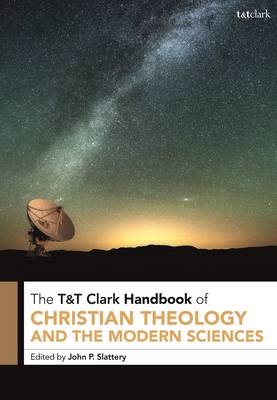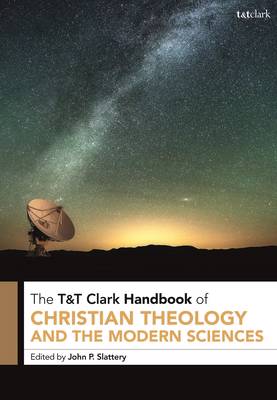
- Afhalen na 1 uur in een winkel met voorraad
- Gratis thuislevering in België vanaf € 30
- Ruim aanbod met 7 miljoen producten
- Afhalen na 1 uur in een winkel met voorraad
- Gratis thuislevering in België vanaf € 30
- Ruim aanbod met 7 miljoen producten
Zoeken
T&T Clark Handbook of Christian Theology and the Modern Sciences
T&T Clark Companion
€ 390,45
+ 780 punten
Omschrijving
This handbook surveys the many relationships between scientific studies of the world around us and Christian concepts of the Divine from the ancient Greeks to modern ecotheology. From Augustine to Hildegard of Bingen, Genesis to Frederick Douglass, and physics to sociology, this volume opens the intersections of Christian theology and science to new concepts, voices, and futures.
The central goal of the handbook is to bring new perspectives to the foreground of Christian theological engagement with science, and to highlight the many engagements today that are not often identified as 'science-theology' discussions. The handbook thus includes several aspects not found in previous handbooks on the same topic: significant representation from the three major branches of Christianity-Orthodox, Roman Catholic, and Protestant; multiple essays on areas of modern science not traditionally part of the "theology and science" dialogue, such as discussions of race, medicine, and sociology; a collection of essays on historical theologians' approaches to nature and science.
T&T Clark Handbook to Christian Theology and the Modern Sciences is divided into 3 sections: historical explorations, encompassing a eleven chapters from Aristotle to Frederick Douglass; Catholic, Protestant, and Orthodox surveys of theology-science scholarship in the 20th and 21st centuries; and ten explorations in Christian theology today, from Einsteinian physics to decolonial sociology. The 24 chapters than span the volume offer the reader, whether scholar, student, or layperson, an essential resource for any future conversations around science and Christian theology.
The central goal of the handbook is to bring new perspectives to the foreground of Christian theological engagement with science, and to highlight the many engagements today that are not often identified as 'science-theology' discussions. The handbook thus includes several aspects not found in previous handbooks on the same topic: significant representation from the three major branches of Christianity-Orthodox, Roman Catholic, and Protestant; multiple essays on areas of modern science not traditionally part of the "theology and science" dialogue, such as discussions of race, medicine, and sociology; a collection of essays on historical theologians' approaches to nature and science.
T&T Clark Handbook to Christian Theology and the Modern Sciences is divided into 3 sections: historical explorations, encompassing a eleven chapters from Aristotle to Frederick Douglass; Catholic, Protestant, and Orthodox surveys of theology-science scholarship in the 20th and 21st centuries; and ten explorations in Christian theology today, from Einsteinian physics to decolonial sociology. The 24 chapters than span the volume offer the reader, whether scholar, student, or layperson, an essential resource for any future conversations around science and Christian theology.
Specificaties
Betrokkenen
- Uitgeverij:
Inhoud
- Aantal bladzijden:
- 384
- Taal:
- Engels
- Reeks:
Eigenschappen
- Productcode (EAN):
- 9780567680426
- Verschijningsdatum:
- 1/10/2020
- Uitvoering:
- Hardcover
- Formaat:
- Genaaid
- Afmetingen:
- 170 mm x 244 mm
- Gewicht:
- 798 g

Alleen bij Standaard Boekhandel
+ 780 punten op je klantenkaart van Standaard Boekhandel
Beoordelingen
We publiceren alleen reviews die voldoen aan de voorwaarden voor reviews. Bekijk onze voorwaarden voor reviews.







